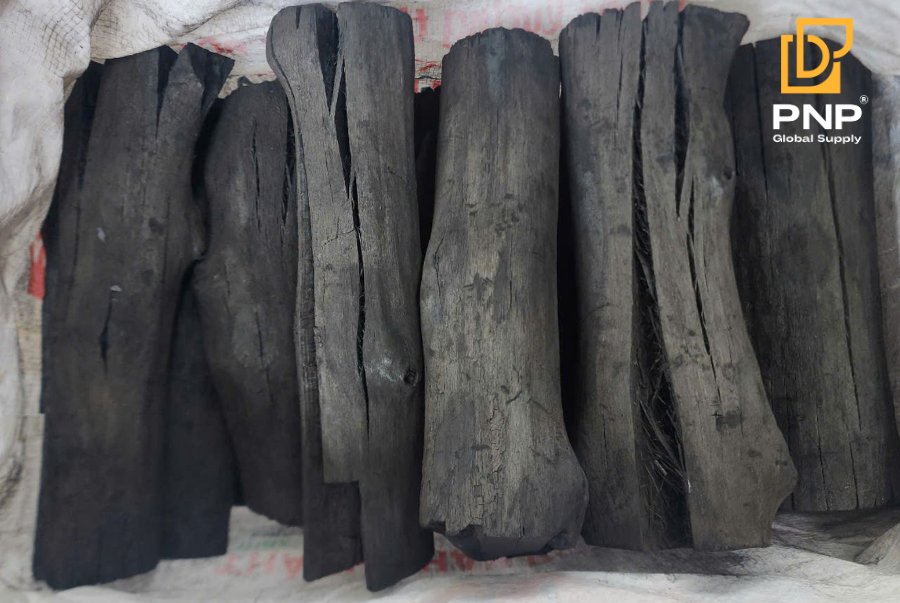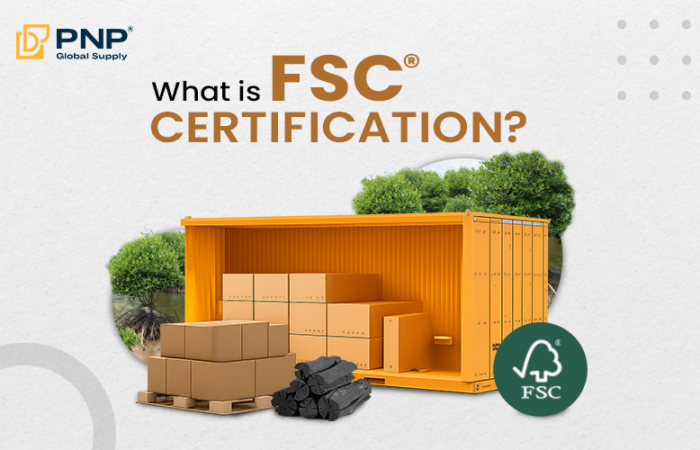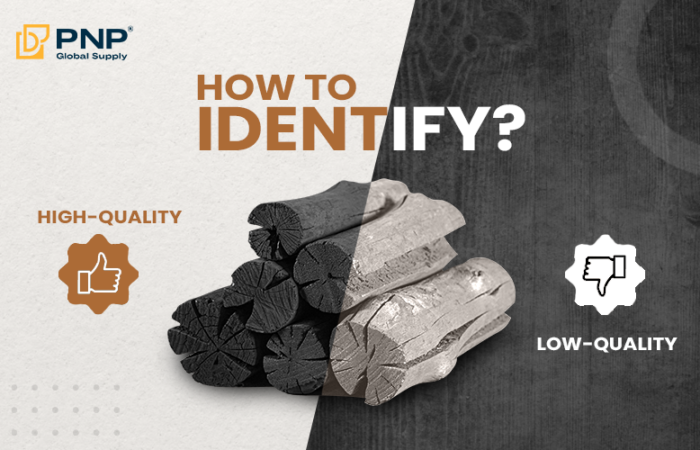Introduction
FSC Certified in Charcoal Production has become a cornerstone of sustainable practices in recent years, addressing pressing environmental concerns such as deforestation, biodiversity loss, and climate change. As these issues take center stage in consumer decisions and industry standards, the Forest Stewardship Council (FSC) certification emerges as a crucial step toward responsible forest management.
In the charcoal industry, FSC certification acts as a seal of environmental responsibility, encouraging producers to adopt sustainable practices that protect forests and uphold ethical labor standards. This article delves into the journey of FSC certification within the charcoal sector, examining its origins, the certification process, and the wide-ranging benefits and challenges it entails. Ultimately, FSC certification stands out as essential for ensuring a sustainable and ethical future in charcoal production.

The Importance of FSC Certification in Charcoal Production
As the demand for charcoal continues to rise globally, especially for grilling, cooking, and heating, its impact on forests becomes more pronounced. Traditional methods of charcoal production have often led to extensive deforestation, illegal logging, and environmental degradation. Such practices not only destroy valuable ecosystems but also contribute significantly to greenhouse gas emissions and loss of biodiversity.
FSC certification is essential in this context because it sets strict guidelines that ensure wood for charcoal is harvested in a way that minimizes environmental impact. FSC-certified charcoal products are made from wood sourced from well-managed forests, where the ecological balance is maintained. This certification system also ensures that forests regenerate naturally or are replanted, preserving the forest cover and reducing carbon emissions associated with deforestation.
Moreover, FSC certification goes beyond environmental standards. It incorporates social and economic considerations by ensuring fair labor practices, respect for indigenous communities, and improved working conditions for laborers involved in forest-related industries. By supporting FSC-certified charcoal, consumers can feel assured that their choice contributes to positive environmental and social change.

History and Growth of FSC Certification in the Charcoal Industry
The Forest Stewardship Council (FSC) was founded in 1993 as a response to the increasing global concern over forest degradation and illegal logging practices. The early focus of the FSC was on timber and paper products, helping companies and consumers make choices that aligned with sustainable forest management. As environmental awareness grew and consumers began to demand more sustainable products, the FSC broadened its scope to include a range of forest-based products, including charcoal.
Charcoal production became a notable addition to the FSC’s certification program (The charcoal production industry first received FSC certification in 2005) due to its large impact on global deforestation and emissions. Many regions around the world, particularly in Africa, Latin America, and Southeast Asia, have traditionally relied on charcoal production as a significant economic activity. Unfortunately, this has often come at a high environmental cost, with illegal and unsustainable logging practices devastating local forests.
Global awareness of environmental issues has been increasing, and FSC certification in charcoal production began to gain momentum around 2010. Major producers began to see the benefits of certification as a way to access new markets, appeal to eco-conscious consumers, and adhere to increasingly stringent environmental regulations. FSC-certified charcoal products have since become widely available in international markets, helping to raise industry standards and increase consumer awareness of responsible forest management practices.

How FSC Certification Works in Charcoal Production
Achieving FSC certification is a rigorous and comprehensive process that requires producers to meet a wide range of standards in forest management, chain of custody, and ethical practices. Let’s break down each component of the certification:
Forest Management Certification
Forest management certification ensures that the wood used in charcoal production is sourced from responsibly managed forests. Producers must demonstrate sustainable forest management practices, which include maintaining biodiversity, protecting water quality, and preserving forest health. This certification involves strict guidelines on the amount of wood that can be harvested, how forests are regenerated, and methods to prevent soil erosion. By following these practices, certified producers reduce their environmental impact and help to maintain the ecological balance of forest areas.
Chain of Custody Certification
The chain of custody (CoC) certification is crucial to maintaining transparency and traceability throughout the production process. It tracks the journey of wood from its source in the forest to the final charcoal product, ensuring that every step adheres to FSC standards. This includes verifying that all handling, transportation, and processing stages maintain compliance. For consumers, this certification means that they can trust the FSC label, knowing that their charcoal comes from a verified, sustainable source.
Social and Environmental Standards
FSC certification is unique in its holistic approach, as it also focuses on the social aspects of production. Certified companies must ensure fair wages, safe working conditions, and respect for workers’ rights. Additionally, the FSC requires that local communities and indigenous people who depend on forests for their livelihoods are treated fairly and involved in the decision-making process. These standards contribute to the long-term sustainability of the forest areas and create a positive social impact, aligning environmental responsibility with human rights.
Benefits of FSC Certification in Charcoal Production
FSC certification offers a range of benefits that extend to the environment, producers, local communities, and consumers. Here’s a closer look:
Environmental Conservation
One of the primary benefits of FSC certification is its role in protecting natural habitats and biodiversity. By promoting sustainable forest management, FSC-certified charcoal production helps prevent deforestation, reduce greenhouse gas emissions, and preserve ecosystems. This proactive approach to conservation ensures that forests can continue to thrive, support wildlife, and play a crucial role in absorbing carbon from the atmosphere.
Environmental Conservation
Economic Benefits for Producers and Local Communities
FSC certification opens up access to international markets, allowing certified producers to sell their products at a premium price. This creates an economic incentive for producers to adopt sustainable practices, which in turn supports local communities that rely on forest-based industries. Certified companies can also attract investments and partnerships that further improve their operational standards and profitability.
Social Benefits and Worker Protection
In many charcoal-producing regions, labor practices can be challenging, with workers often facing poor conditions and low wages. FSC certification helps ensure that workers receive fair compensation, safe working conditions, and respect for their rights. Additionally, it requires that local communities are consulted in forest management decisions, helping to preserve indigenous rights and empower these communities to protect their resources.
Increased Consumer Confidence
Consumers are increasingly seeking products that align with their environmental values. FSC certification gives consumers the confidence that they are purchasing a product that meets high standards of environmental and social responsibility. By choosing FSC-certified charcoal, consumers can support sustainable practices, reduce their carbon footprint, and contribute to the fight against deforestation.
Challenges and Future Outlook of FSC Certification in Charcoal Production
While FSC certification has made significant progress in the charcoal industry, there are still challenges that limit its broader adoption. Some of the primary challenges include:
Cost and Complexity of Certification
The certification process can be costly and complex, especially for smaller producers. Meeting FSC standards requires a significant investment in time, training, and resources, which can be a barrier for companies that lack the necessary funds. To address this, the FSC and other organizations are working on ways to make certification more accessible, especially for small and medium-sized enterprises.
Consumer Education and Awareness
While awareness of FSC certification is growing, there is still a need to educate consumers about its importance in charcoal production. Many consumers are unaware of the impact that unsustainable charcoal production has on forests and may not understand the value of choosing certified products. Increasing consumer awareness is essential to driving demand for FSC-certified charcoal and encouraging more producers to seek certification.
Global Expansion and Standardization
As demand for FSC-certified charcoal grows, ensuring consistency and quality across different regions is essential. Expanding certification in countries with high rates of deforestation and illegal logging remains a challenge, as does ensuring that FSC standards are uniformly enforced worldwide.

Conclusion
The Evolution of FSC certification in charcoal production marks a transformative step toward a more sustainable and accountable industry. By adhering to stringent environmental, social, and economic standards, FSC-certified charcoal producers contribute to the preservation of forests, support local communities, and ensure fair treatment of workers. For consumers, choosing FSC-certified charcoal means supporting ethical practices, protecting biodiversity, and contributing to the fight against climate change.
As FSC certification continues to gain momentum, it is essential to overcome existing challenges and further promote awareness of the certification’s value. With continued efforts from producers, consumers, and environmental organizations, FSC certification can help ensure that charcoal production supports both people and the planet, creating a sustainable future for generations to come.
________________________________
Contact us for more information
Facebook: PNP Charcoal
Instagram: PNP Charcoal
Email: info@pnpglobalsupply.com




